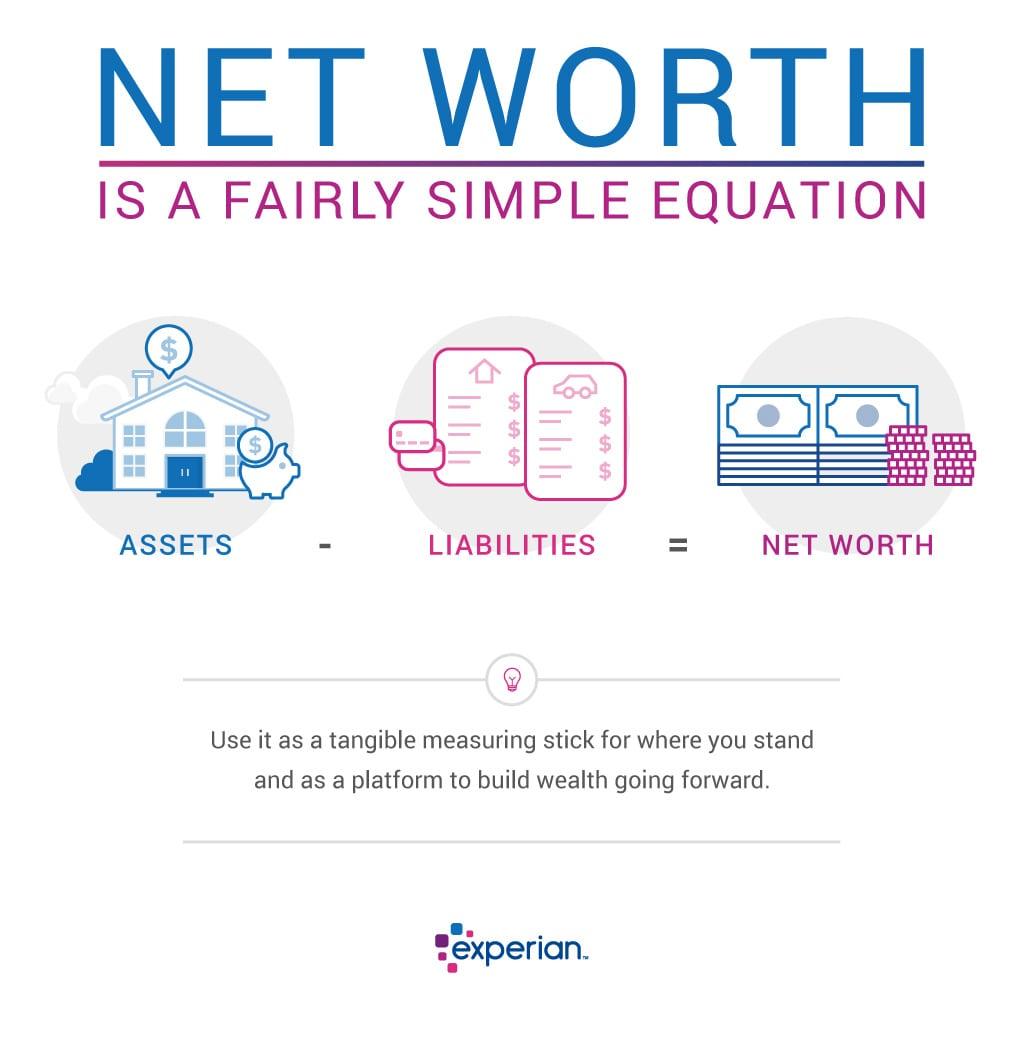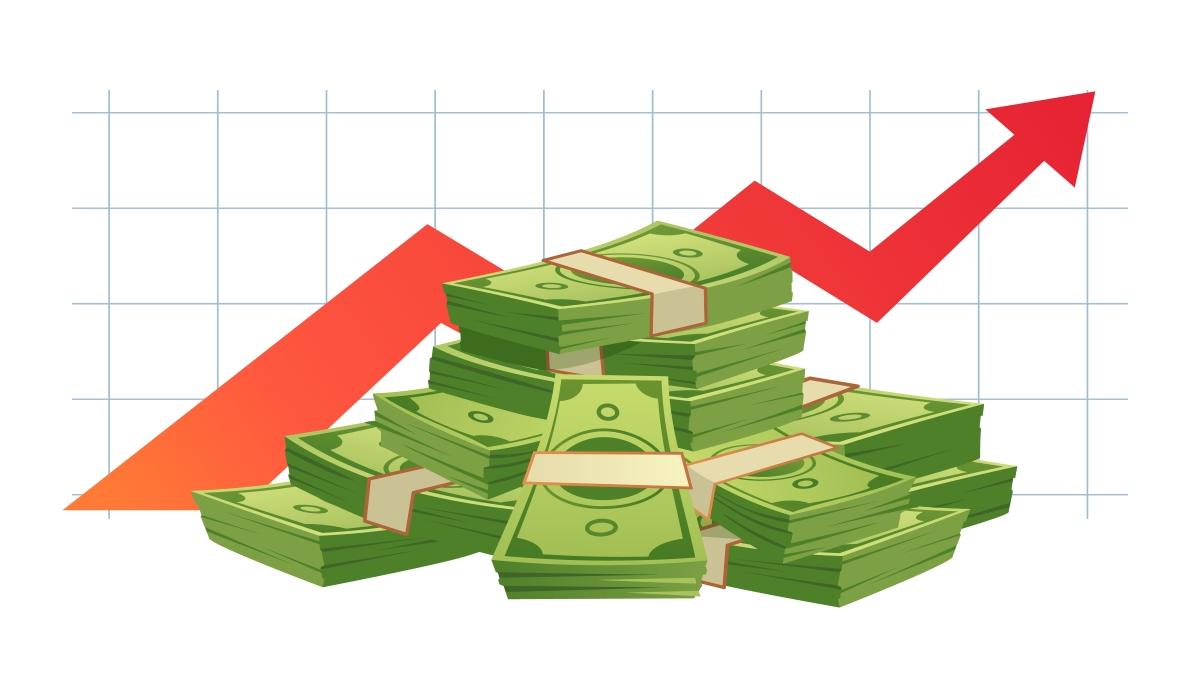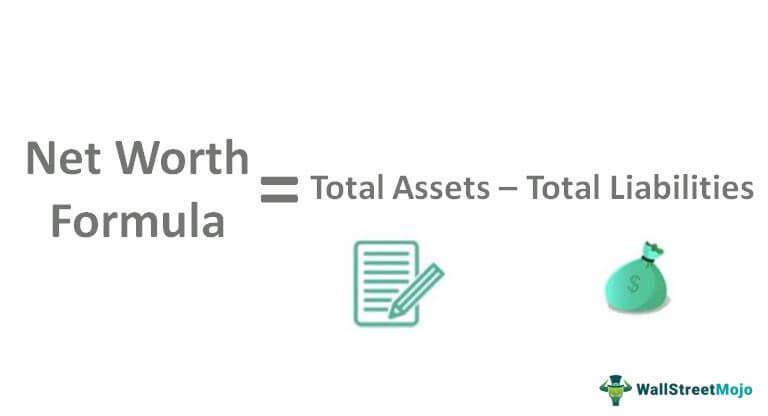In the grand tapestry of financial well-being, understanding one’s net worth is akin to holding a map while navigating the intricate maze of personal finance. It’s a concept that might seem reserved for the likes of billionaires and business tycoons, but in reality, it’s a crucial measure for anyone looking to get a clear picture of their financial health. Whether you’re planning to invest in property, save for retirement, or simply aiming to get your finances on track, knowing your net worth is your starting line. It slices through the everyday complexities of finances, presenting a clear snapshot of where you stand at any given moment.
Calculating net worth might conjure images of complex equations and financial jargon, but it is, in fact, beautifully simple. It’s a straightforward subtraction that anyone can do with just a pencil, paper, and a little know-how.
So, let’s embark on this financial expedition, exploring the importance of this pivotal financial metric and how to master its calculation. With clarity and insight just around the corner, understanding and applying the concept of net worth might just change the way you view your finances forever.
Table of Contents
- Demystifying Net Worth: Understanding Your Financial Snapshot
- The Essentials of Calculating Your Net Worth
- Strategies to Enhance Your Net Worth: Practical Tips for Financial Growth
- Common Pitfalls in Net Worth Calculation and How to Avoid Them
- Concluding Remarks

Demystifying Net Worth: Understanding Your Financial Snapshot
Net worth is the numeric value that sums up your financial health. Simplifying this concept, it quantifies the difference between what you own (assets) and what you owe (liabilities). This figure can serve as a crucial benchmark in your financial landscape, assisting in planning both short-term budgets and long-term investments.
The calculation of net worth is straightforward: simply subtract your total liabilities from your total assets. To break it down:
- Assets might include cash, investments, property, and other valuable belongings.
- Liabilities include any debts such as loans, mortgages, and credit card balances.
For instance, if you own a home valued at $350,000, a car worth $20,000, and have investment and saving accounts totaling $30,000, your assets total $400,000. If you owe $250,000 on the mortgage, $10,000 on car loans, and $5,000 in other debts, your liabilities add up to $265,000.
| Type | Amount |
|---|---|
| Assets: | $400,000 |
| Liabilities: | $265,000 |
| Net Worth: | $135,000 |
This example shows a net worth of $135,000—a positive number indicating that the total assets surpass total debts. Conversely, a negative net worth suggests that debts are outweighing assets, hinting at potential financial challenges.
Understanding your net worth isn’t just about knowing a number; it’s about leveraging this information to make informed decisions. With regular assessments, you can gauge how different financial decisions adjust your net worth over time. This could mean deciding against taking on more debt when your liabilities are disproportionately high or might encourage more aggressive investing when assets show substantial growth potential.
Distinguishing between high-value assets that appreciate, like property or stocks, and depreciative assets, like vehicles, is essential. Appreciating assets can improve your future financial landscape, while values of depreciative assets tend to decrease over time.
Reflecting on liabilities, not all debt is negative. Strategic debts like mortgages or student loans can be considered investment debts, potentially increasing your net worth by boosting your credentials or owning appreciating property. Conversely, high-interest debt from credit cards often harms financial health and should generally be minimized or eliminated promptly.
Thus, a measured view of your net worth today could transform your financial future. By keeping a meticulous record of both assets and liabilities, and understanding how each component influences your overall financial standing, you can craft a strategic plan that navigates you toward wealth accumulation and financial resilience. Regular review and adjustment of your assets and debts is critical in this ever-changing financial landscape.

The Essentials of Calculating Your Net Worth
Determining your net worth is akin to drawing a financial road map, allowing you to understand where you currently stand and plan where you want to go. Below, you’ll find a detailed guide that goes beyond mere calculations, encouraging you to evaluate your fiscal health with clarity and insight.
Step 1: List Your Assets
Begin by tallying up all your assets. These are anything of value that you own. Split these into liquid assets (cash or anything that can be converted into cash quickly) and non-liquid assets (items that cannot be swiftly converted to cash).
- Cash and cash equivalents: including savings accounts, checking accounts, physical cash, etc.
- Investments: stocks, bonds, mutual funds, retirement accounts (like 401(k)s and IRAs), and other securities.
- Real Estate: the current market value of any property you own.
- Personal property: vehicles, jewelry, art, and other collectibles with a considerable resale value.
Step 2: Calculate Your Liabilities
Next, sum up all your liabilities or what you owe. These can be split into short-term and long-term liabilities:
- Credit Card Balances
- Outstanding Medical Bills
- Personal Loans
- Mortgage(s)
- Student Loans
- Other long-term debt such as auto loans
Step 3: Do the Math
The formula for calculating your net worth is straightforward:
Net Worth = Total Assets – Total Liabilities
Visualizing the Calculation: A Sample Table
| Asset Type | Value |
|---|---|
| Total Assets | $500,000 |
| Total Liabilities | $200,000 |
| Net Worth | $300,000 |
Analyze the Outcome
Once calculated, this net figure gives a snapshot of your fiscal health. A positive net worth indicates that your assets surpass your debts—a sign of good financial health. Conversely, a negative net worth means that your liabilities exceed your assets, which might signal a need for changes in spending, saving, or investing strategies.
Making Strategic Decisions
Understanding your net worth is more than recognizing a number; it’s about using this knowledge to shape your financial future. If your net worth is lower than anticipated, consider revisiting your budget, exploring ways to reduce debt, or ways of increasing your income. Alternatively, a healthy net worth might inspire further investment or saving for future financial goals, such as retirement or education.
Keep Tracking Regularly
Regularly updating your net worth calculation ensures you’re aware of your financial progression over time. This makes it easier to adjust your strategies in order to meet personal and family financial goals, adapt to life changes, or recover from economic setbacks.
Harness the power of understanding your net worth, and take control of your financial destiny with these straightforward yet profound steps.

Strategies to Enhance Your Net Worth: Practical Tips for Financial Growth
Increasing your net worth isn’t just about saving money; it involves a proactive strategy of enhancing assets and managing liabilities. Here are several methodologies you can apply to escalate your financial health and expand your net worth effectively.
Diversify Your Investments
One of the fundamental rules in investing is to diversify. This minimizes risk and maximizes potential returns. Consider a mix of stocks, bonds, real estate, and possibly some commodities. Each asset class reacts differently to the same economic event, which can help balance your overall portfolio’s performance.
Improve Your Income Streams
Increasing your income is a more direct route to boosting your net worth. Look into raise opportunities at work, consider changing jobs to a higher paying role, or explore side hustles. Passive income streams, such as rental income or earnings from intellectual property, can significantly impact your financial growth over time.
Manage Debts Wisely
Paying down high-interest debt should be a priority. List out your debts and organize them by interest rates. Focus on paying off those with the highest rates first. If possible, consolidate debts to a lower interest rate to lessen the burden and speed up repayment time.
| Debt Type | Interest Rate | Strategy |
|---|---|---|
| Credit Card | 20% | Prioritize repayment |
| Student Loan | 6% | Consider refinancing |
| Mortgage | 4% | Maintain regular payments |
Leverage Tax-Efficient Investing
Understanding how different investments are taxed is crucial. Utilize retirement accounts like IRAs or 401(k)s that have tax advantages. Think about investing in municipal bonds, which are often free from federal (and sometimes state and local) taxes, making them an appealing option for investors in higher tax brackets.
Regularly Review Your Financial Portfolio
Markets change, and so should your investment strategy. Regular reviews of your financial portfolio help in adjusting your assets to align with current market conditions and your long-term financial goals. Consider consulting with a financial advisor for personalized advice and to ensure you’re on the right track.
Optimize Your Assets
- Regularly reassess real estate holdings and consider if it’s the right time to sell, buy, or refinance.
- Evaluate business ventures for profitability and potential scaling or selling off.
- Closely monitor market trends and technological advancements that could impact your investment values.
Automate Your Savings
Setting up automated transfers to a savings account can dramatically improve your ability to save without impacting your day-to-day budget. This ‘set-and-forget’ method ensures you regularly contribute to your savings, helping your net worth grow steadily over time.
Analyzing and improving your net worth is an ongoing process that requires diligence and adaptation to new financial landscapes. Embrace these strategies, commit to continuous financial education, and watch as your net worth steadily climbs.

Common Pitfalls in Net Worth Calculation and How to Avoid Them
Calculating your net worth may seem straightforward – simply subtract your liabilities from your assets. However, a few common missteps can lead to inaccurate figures and misinformed financial decisions. Understanding these pitfalls can help ensure that your calculations provide a realistic snapshot of your financial health.
Overvaluing Assets: One of the most frequent errors is overestimating the value of assets. For instance, while your home may hold significant sentimental value, its market value can be quite different. Use recent sales data from similar properties in your neighborhood for an accurate estimate. Similar principles apply to vehicles and other personal properties – the resale value often differs significantly from the purchase price.
| Asset | Common Overvaluation |
|---|---|
| Home | 20-30% above market |
| Car | 15-25% above market |
| Art & Collectibles | Highly subjective |
Ignoring Small Debts: While large debts like mortgages and student loans are hard to overlook, smaller or irregular debts such as credit card balances and personal loans can also accumulate, significantly impacting your net worth. Ensure all liabilities, no matter how insignificant they may seem, are accounted for.
Overlooking Liquidity: Assets that cannot be quickly converted into cash (non-liquid assets) might not be as beneficial as they appear in the short term. For instance, real estate or business interests can take time to sell. Consider the liquidity of your assets when evaluating your financial stability.
Forgetting Future Liabilities: Future expenses like taxes, repairs, or education costs should be considered in net worth calculations, as they can affect your financial future. Estimating these and subtracting them from your assets can prevent surprises down the road.
Using Incorrect Valuation Methods: The method used to value your assets can significantly impact your net worth calculation. For investment accounts, using the current balance is straightforward, but for properties or businesses, choosing the right valuation method is key. Consult with a professional when in doubt to avoid skewed figures.
Failing to Update Regularly:Net worth isn’t a static number. The failure to update your net worth calculation to reflect recent assets and liabilities leads to outdated information that could be misleading. Financial experts recommend updating your net worth at least annually or after significant financial changes.
By understanding and avoiding these pitfalls, your net worth calculation will not only be more accurate but also a more effective tool for maintaining and planning your financial health. Perform checks regularly, consider professional input, and always keep records up to date. With a precise net worth calculation, you can plan more effectively for your future.
Concluding Remarks
As we close this chapter on unpacking the mysteries of net worth, remember that these numbers are more than just a tally on a balance sheet—they are a reflection of a journey, marked by diligence and strategic financial decisions. Mastering the art of calculating your net worth isn’t just about knowing where you stand today, but about charting a course towards where you aspire to be tomorrow. Whether your balance teeters more towards liabilities or your assets are flourishing, every figure tells a story.
So take this knowledge, sharpen your pencils, and get ready to write your own financial tale. With each calculation, you deepen your understanding of your economic landscape, equipped to make more informed and inspired choices. After all, knowing your net worth isn’t merely a measure of wealth, but a step towards empowering your economic self-awareness. Where you go from here is not just in the numbers, but in what you do with them. Dream boldly, plan wisely, and chart your course to financial enlightenment. After all, every great journey begins with a clear map in hand.
